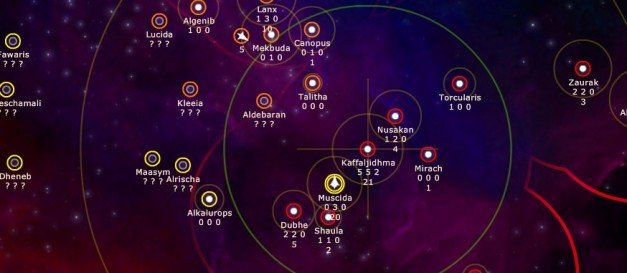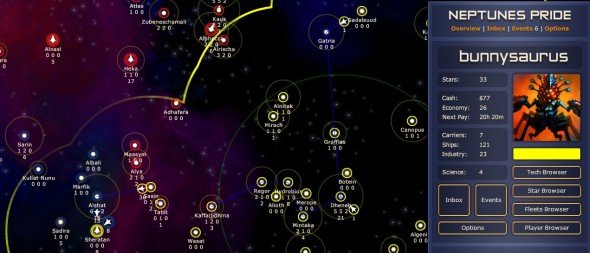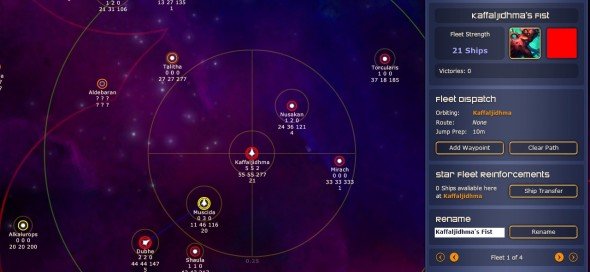Neptune's Pride - PC Gamer UK's Webgame Of The Year

Five weeks of plotting, bluffing and double-crossing with Neptune's Pride, the most duplicitous strategy game of the year.
The icon next to his name turned grey, signalling that he'd just signed out of MSN Messenger. That meant he was away from his computer. It was time. I opened up the other window, selected my fleets and sent them all towards his worlds. By the time he came home that night to see what I'd done, it would be too late. And by the next morning, I'd have won the entire match. All hail the space slug! Doom to the space squid! That'll teach them to make an alliance with me.
Neptune's Pride isn't real-time strategy, it's long-time strategy. Each day, you login, upgrade some of your planets, direct your fleets around the galaxy, and then… you wait. A long time. Moving that one fleet between those two planets? That's going to take four hours. Between the next two planets? Another ten. To reach the enemy planet you've ultimately sent it to attack? About 22 hours total.
The result is that five minutes giving orders in the morning leads to entire days of worry. Did you make the right move? Will your forces be obliterated? Is that damned space turtle about to betray you? It's the betrayal that's key. If you were to list its features, NP is a slip of a game. In fact, here it is in a paragraph:

Maps are randomly generated. There's only one ship type. Planets can be upgraded by Industry, Economy and Science, to generate ships, money or science faster. Better science allows quicker research of stronger weapons, larger scanning range, and faster ships that can travel further distances. And you can trade.
Space invaders
That's the entire game. Everything else is just people. Who will you trade with? Who will you ally with? Who will you attack? Playing becomes about sending messages, and using everyone's limited knowledge to plot behind their back. Or at least, that's the way the space slug plays.
Which is how I ended up sitting at home waiting for that little icon to turn grey. The match had been going on for five weeks by this point, and had been marked by broken alliances, early morning logins and late night attacks. My opponent and I were now the last races standing. We'd betrayed each other once apiece already, but had grown weary and decided instead to create a lasting peace. One I'd just thrown away in pursuit of victory.
The biggest gaming news, reviews and hardware deals
Keep up to date with the most important stories and the best deals, as picked by the PC Gamer team.

It was a few hours later and the space squid's icon turned blue again. When he saw what I'd done, he simply sighed and started trading me his planets for nothing. His message was clear: 'If you want to win that badly, then fine, just take them.'
I did the only thing I could: I traded the planets back as fast as I received them, with the extra he needed to win. All hail the space squid! Space slug feels bad about himself.

